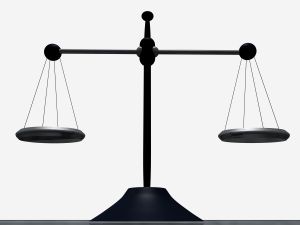
Two tax advisors with BDO Dunwoody LLP have scored a partial victory in their suit against the Canada Revenue Agency (CRA).
The July decision from the Ontario Court of Appeal allows the two advisors to proceed with their claim for negligence and abuse of process against the CRA and several government employees. However, other claims for malicious prosecution and harm to the advisors’ wives as a result of the investigation were struck out.
The case dealt with a CRA audit that began in 1998 and concerned the use of research and development tax credits by several corporate taxpayers. The audit led to criminal charges under the Income Tax Act and the Criminal Code. The preliminary inquiry lasted from 2001 to 2005, with both advisors being discharged. Charges against the corporate taxpayers were stayed due to unreasonable delay.
The advisors, Michael McCreight and John Gregory Skinner, and their spouses then launched an action against the CRA, the Attorney General of Canada and several of their employees. A particular focus of the litigation was the decision of the CRA to lay criminal charges in what the plaintiffs alleged was an attempt to hang onto documents previously seized from the advisors’ offices during the audit. A court had ordered the return of the documents (60 boxes of materials and three hard drives) prior to the laying of the criminal charges: the criminal charges, which allowed the Crown to retain the materials, were laid the same day that the materials would otherwise have had to be returned.
In their lawsuit against the CRA, the advisors alleged that the investigation had been mishandled and resulted in the laying of false charges. They made a claim for: “conspiracy, fraudulent and negligent misrepresentation, negligence, malicious prosecution, misfeasance in public office, breach of fiduciary duty and abuse of process, as well as breaches of the Charter,” the court of appeal decision notes. Their spouses also made claims under the Family Law Act for damage caused by post-traumatic stress disorder.
A lower court agreed with the government that all the claims should be struck out as not showing a reasonable cause of action, except the claim for misfeasance in public office.
However, the court of appeal restored the right of the advisors to pursue two other significant claims — abuse of process and negligence by the CRA in its dealings with the plaintiff advisors. The decision explores some relatively new ground in the area of claims of negligence against the CRA. The plaintiffs alleged that the CRA has a duty of care “towards suspects” that they are investigating. They alleged that, “the relationship between a CRA investigator and his or her suspect is analogous to that between a police officer and the subject of his or her investigation,” the decision says.
Specifically, the plaintiff advisors alleged that this duty was breached by: “failing to investigate the matter properly, failing to comply with [a court order] rushing to lay charges against the [advisors] before the investigation was complete, and by particularly targeting [the advisors] for criminal prosecution without cause,” the decision says.
The CRA argued that such a duty of care has not been previously recognized by the courts, and that the lower court was correct in striking out this cause of action.
But the court of appeal found that it was not obvious that no such duty exists. Referring to a few other recent cases holding that such a duty may exist on the part of police officers, as well as CRA employees, the court noted that similar reasoning could be extended to this case, stating: “surely it is not plain and obvious that a CRA investigator owes no such duty when operating under ITA provisions that attract criminal sanction and under the Criminal Code.”